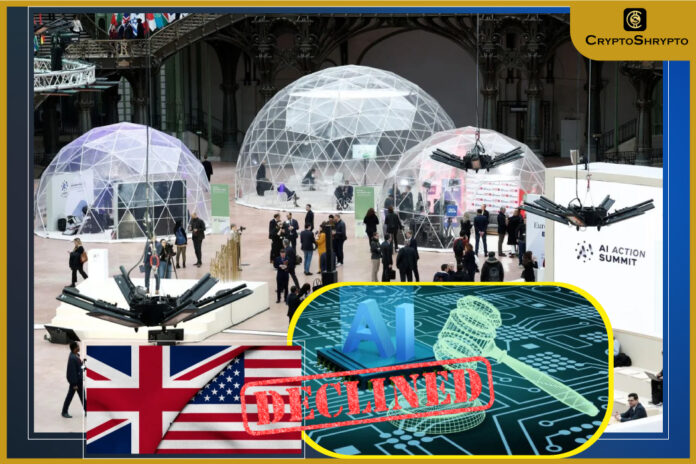At the recent Paris AI Action Summit, the United Kingdom and the United States notably declined to sign a global agreement on artificial intelligence (AI) development. The agreement, signed by 60 nations, including France, China, and India, aims to promote AI that is “open,” “inclusive,” and “ethical.” However, both the UK and US cited concerns over national security and regulatory overreach as reasons for withholding their signatures.
The UK government stated that while it agreed with much of the declaration, it found the framework lacking in clarity on global governance and security implications. “We felt the declaration didn’t provide enough practical clarity on global governance, nor sufficiently address harder questions around national security,” a government spokesperson said.
Meanwhile, US Vice President JD Vance emphasized a different stance, warning that excessive AI regulation could stifle innovation. Speaking at the summit, he reaffirmed the Trump administration’s commitment to “pro-growth AI policies,” opposing stringent global oversight. “AI is an opportunity that the Trump administration will not squander,” Vance stated, aligning himself with industry leaders who argue that regulatory barriers could limit the technology’s potential.
This position contrasts sharply with French President Emmanuel Macron’s advocacy for stronger AI regulations. “We need these rules for AI to move forward,” Macron argued, defending the agreement’s focus on transparency, safety, and environmental sustainability. The agreement also set forth commitments to bridge digital divides and ensure responsible AI energy consumption—a growing concern as AI models require increasing computational power.
While some experts view the UK’s decision as a risk to its credibility as an AI safety leader, others, such as Tim Flagg of the UKAI trade body, support the government’s move. “We cautiously welcome the decision, as it allows the UK to explore pragmatic solutions and work closely with US partners,” Flagg stated.
Despite opting out of the main declaration, the UK did sign other agreements at the summit related to AI sustainability and cybersecurity. Downing Street clarified that its decision was independent and not influenced by the Trump administration, asserting that it prioritizes national interests over international consensus.




